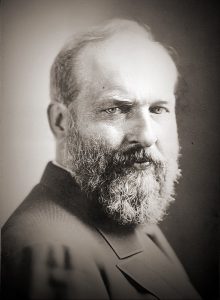“Oh, that I had the indictment written by my adversary!” (Job 31:35)
“Wretched man that I am! Who will deliver me from this body of death?” (Romans 7:24)
This morning my devotional reading juxtaposed two men, both in deep woe, but for profoundly different reasons. My Old Testament reading concluded in Job 31, which is Job’s last gasp of complaint over what appears to him to be the injustice of his sufferings. My New Testament reading included Romans 7 and 8, where we find Paul crying out in despair over his struggle with sin.
Both men are tormented and distraught; both are crying out in anguish. Job goes through a litany of seven areas of sin, showing how thoroughly he has probed his heart for any evidence of sin as he tries to find a reason that makes sense of why God would let him suffer as he does (Job 31:35-37). Paul, on the other hand, is in anguish because everywhere he turns in review of his ways he finds nothing but sin. He sees sin everywhere in himself. He is looking for someone who can save him from God’s just judgment and the power of sin.
Job sees no sin anywhere in his life, yet he suffers. Paul sees sin everywhere in his life, yet he is powerless to deal with it. Both are beyond distraught.
The answer in both cases is: “Thanks be to God through Jesus Christ our Lord!” (Romans 7:25a).
Job repeatedly longed for someone to stand between him and God as a mediator (Job 11:33; 16:19-21; 19:25-26). Paul knows Jesus to be just that one, a perfect Mediator, who at the cost of His own life paid our sin penalty (Romans 8:3), whether we are able to discern those sins or not (Psa. 19:12-13). Jesus causes us to gladly cry, “There is therefore now no condemnation for those who are in Christ Jesus (8:1). Plus, Jesus sends His very own Spirit to reside within us (8:9), to deeply and personally make real our connection and fellowship with God (8:15-17), and to produce through us all that He requires of us (8:2-4)!
In Jesus we find the one and only Mediator between God and man (1 Timothy 2:5-6), in whom we may rest as life and its hardships do not make sense. In Jesus we find the one and only sin sacrifice, in which we may rest when our sins overwhelm us. In Jesus we receive His Spirit, in whom we may rest, trusting His empowering to free us from the power of sin.
Truly we cry, “Thanks be to God through Jesus Christ our Lord!”




